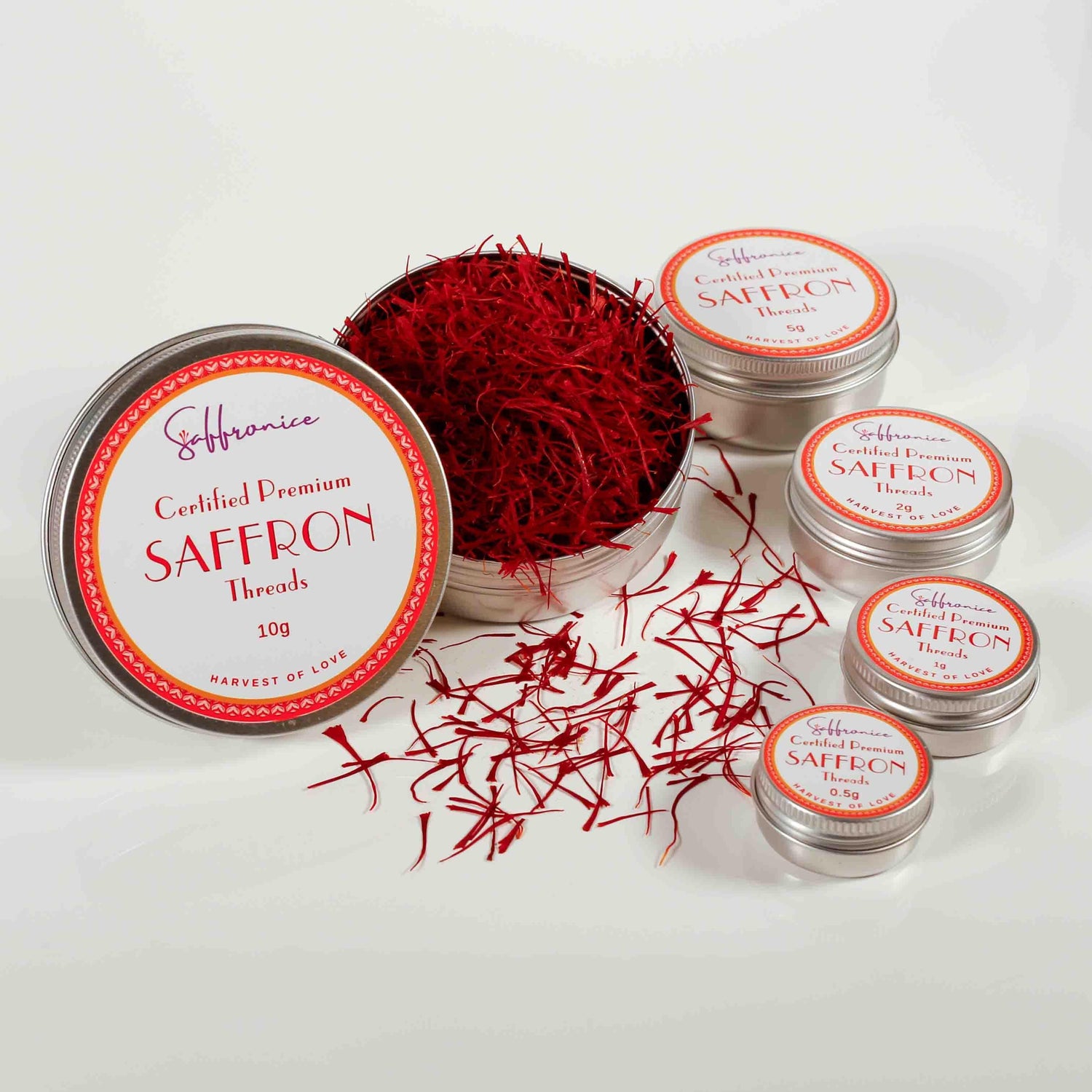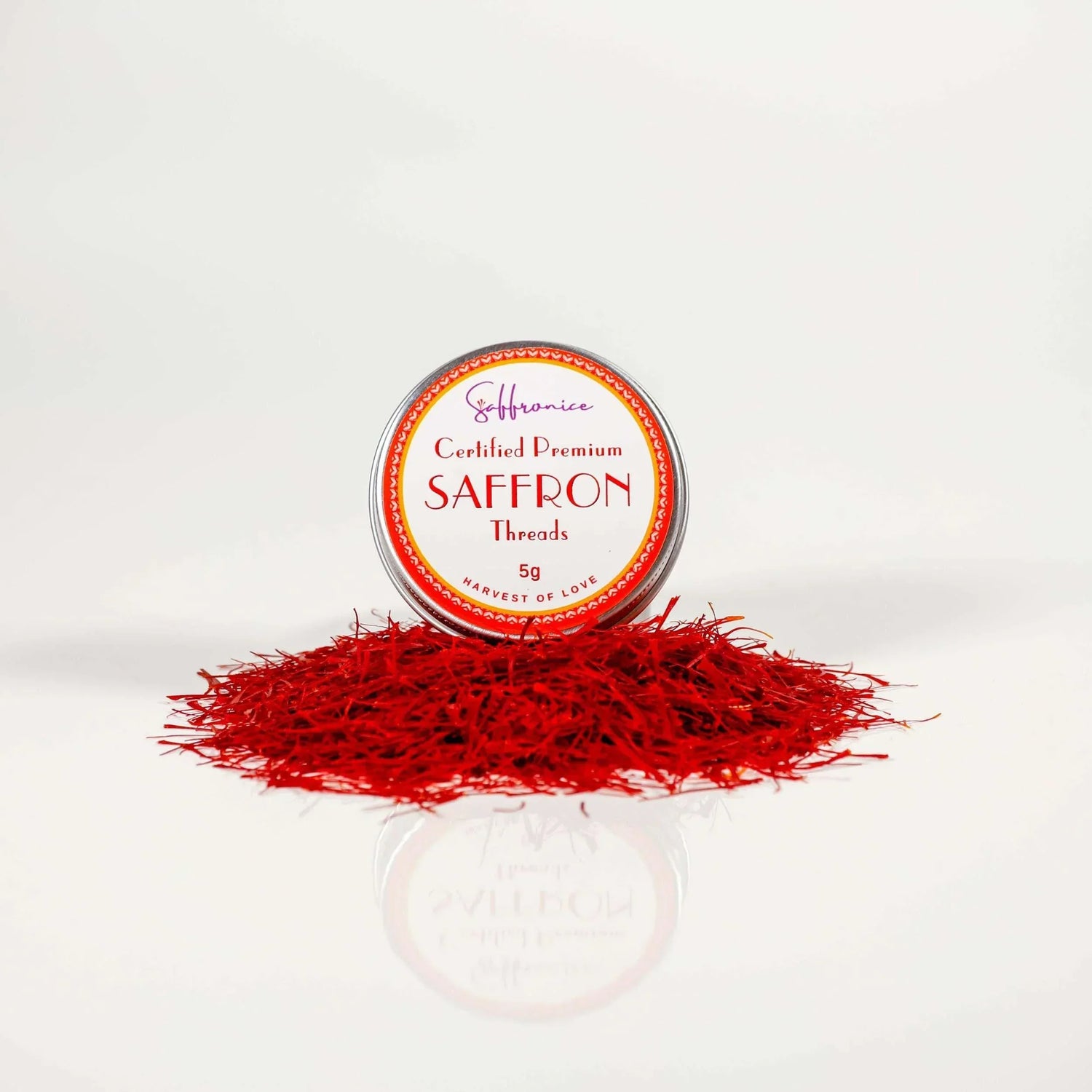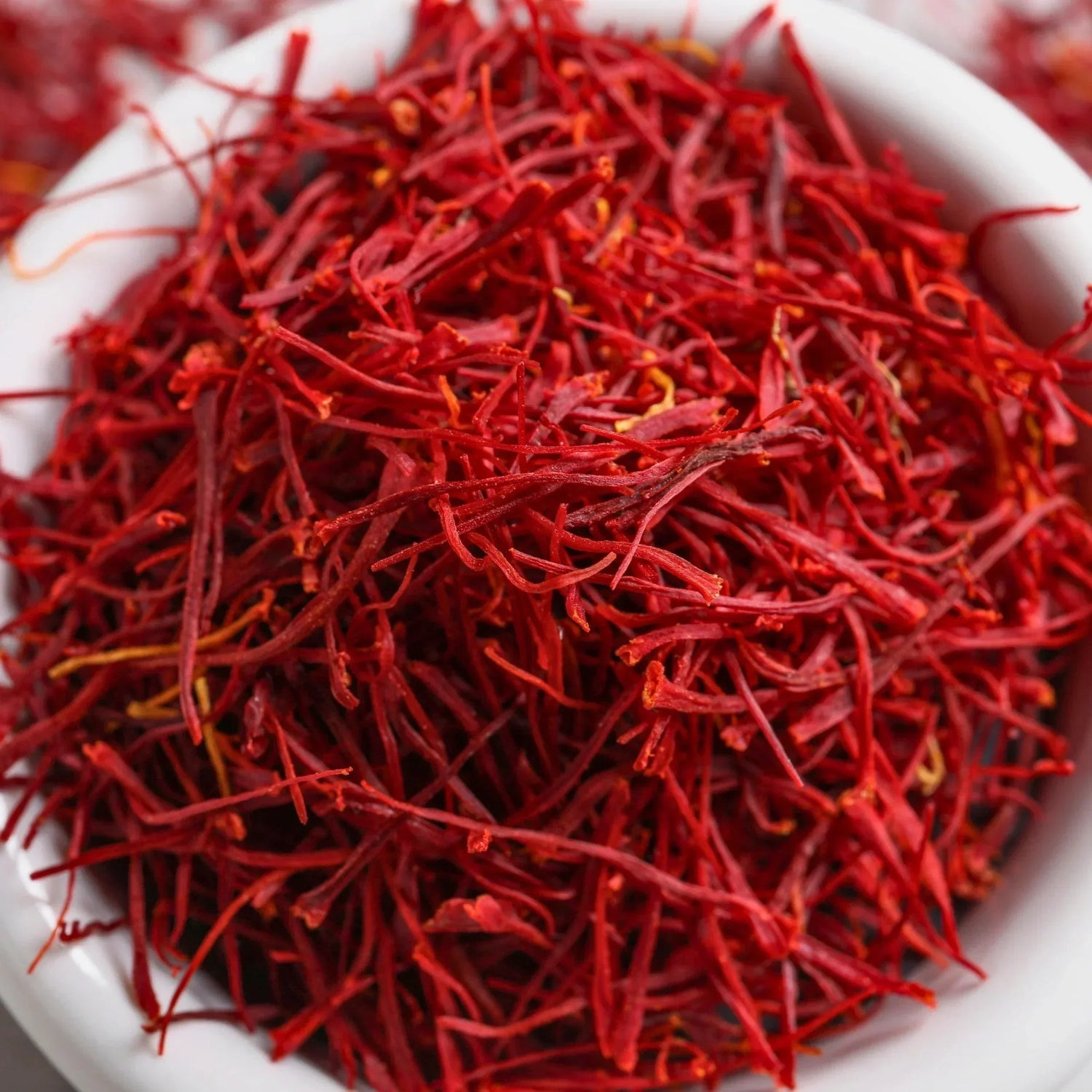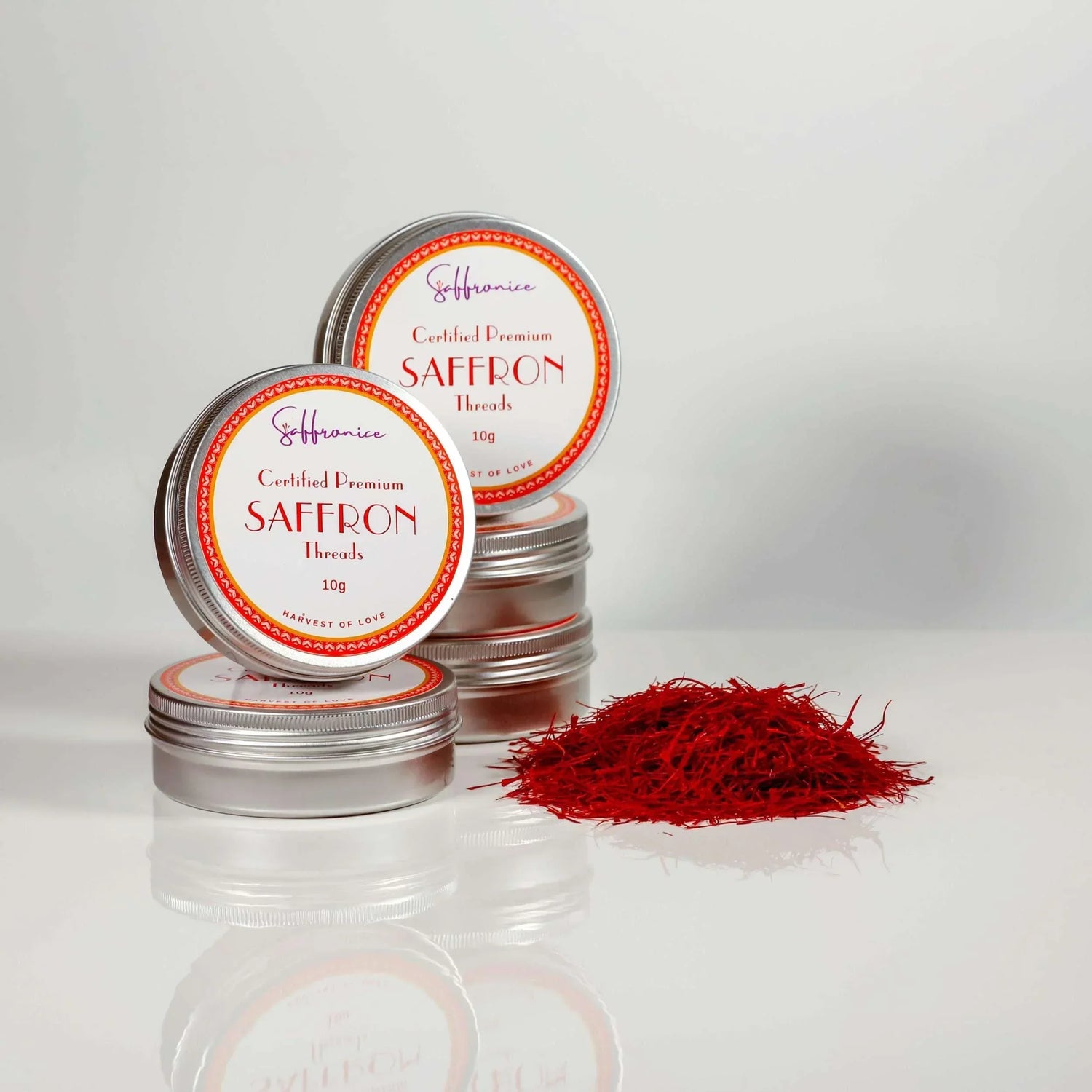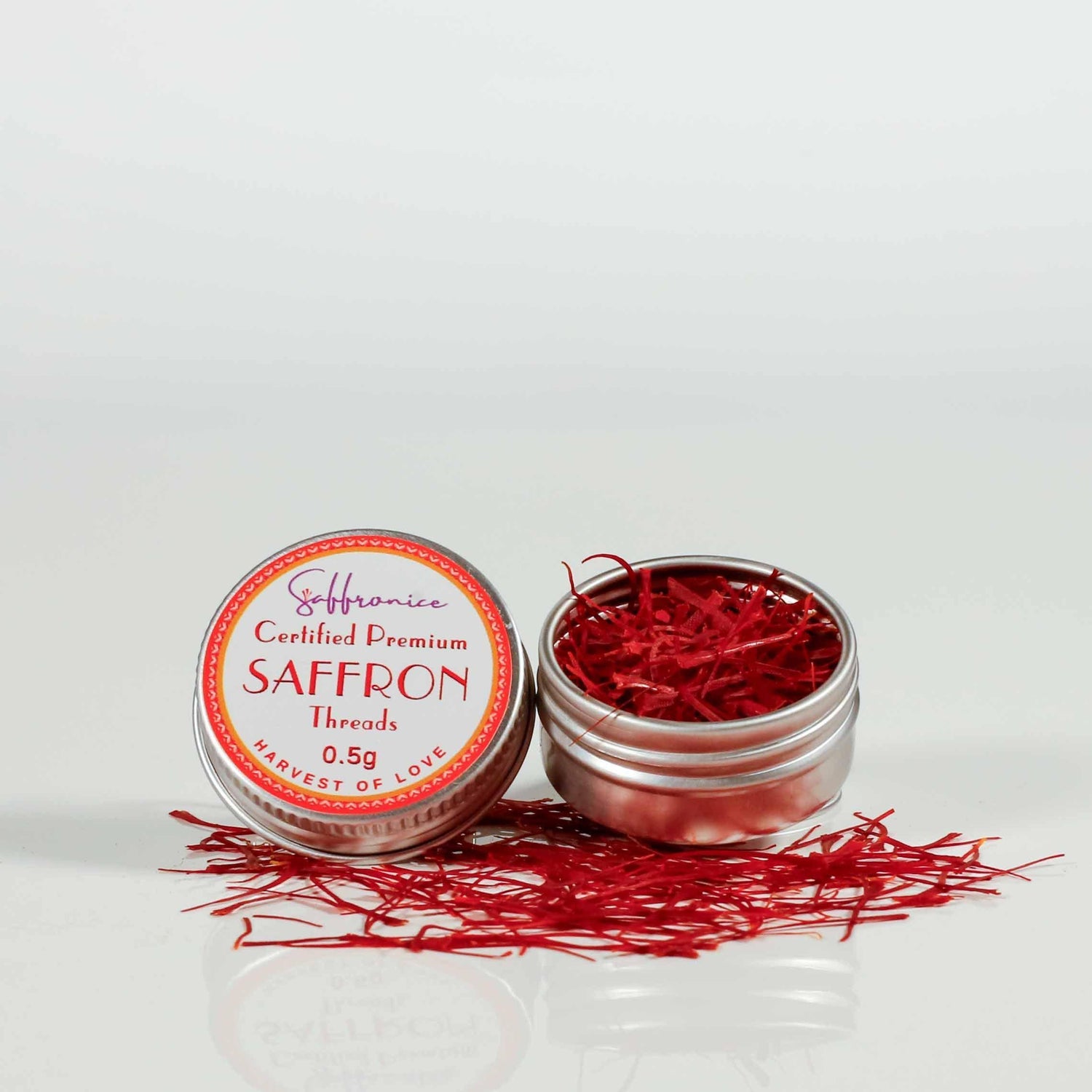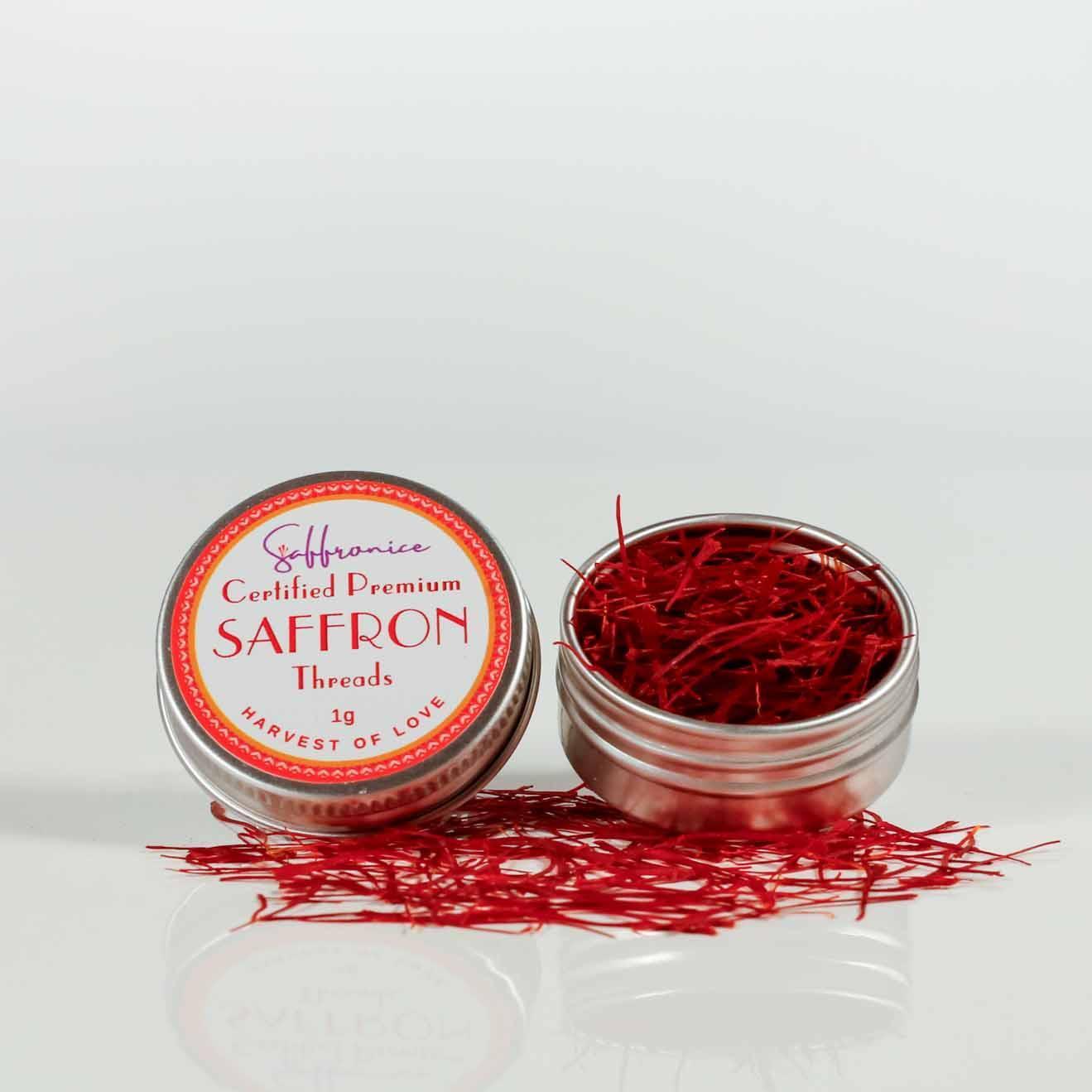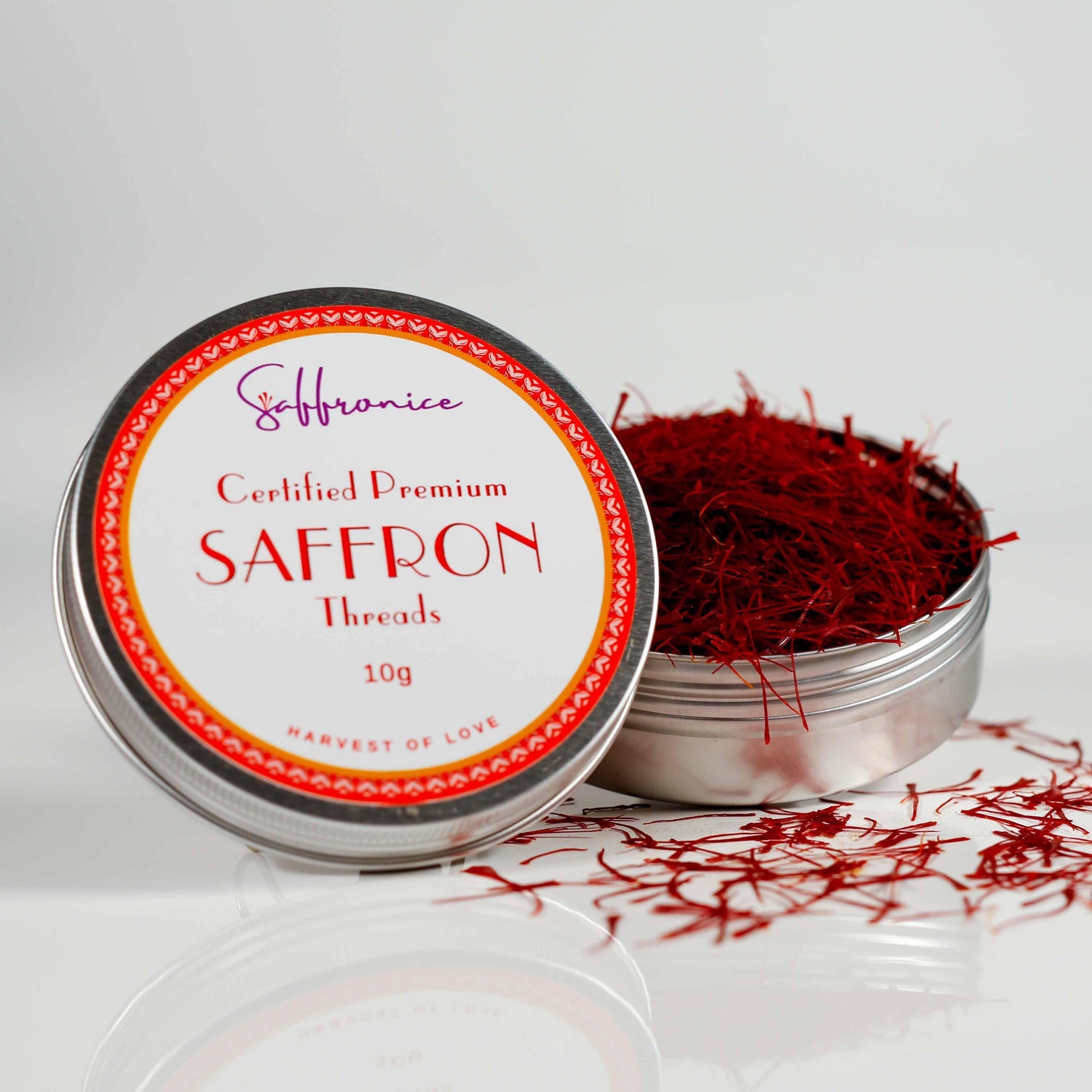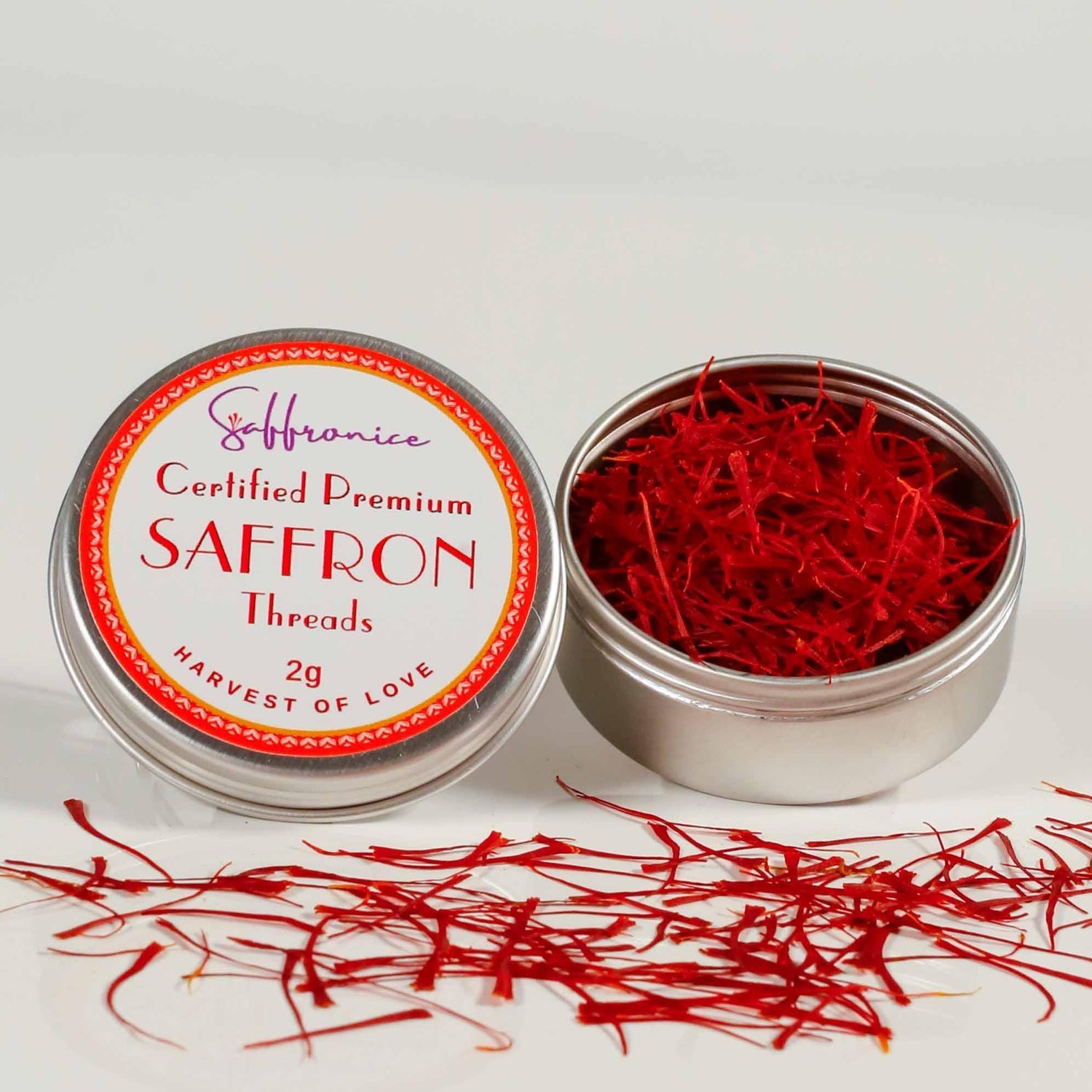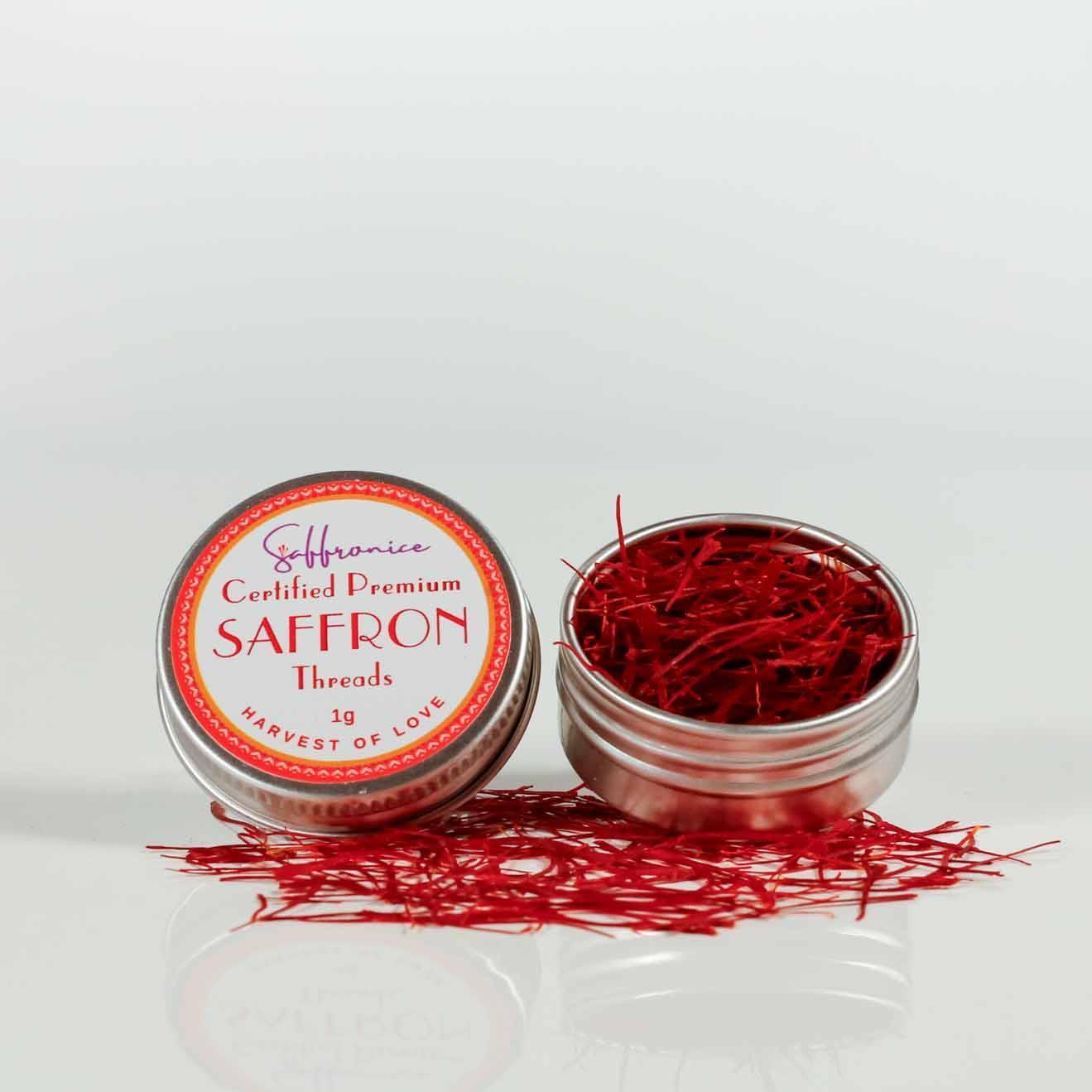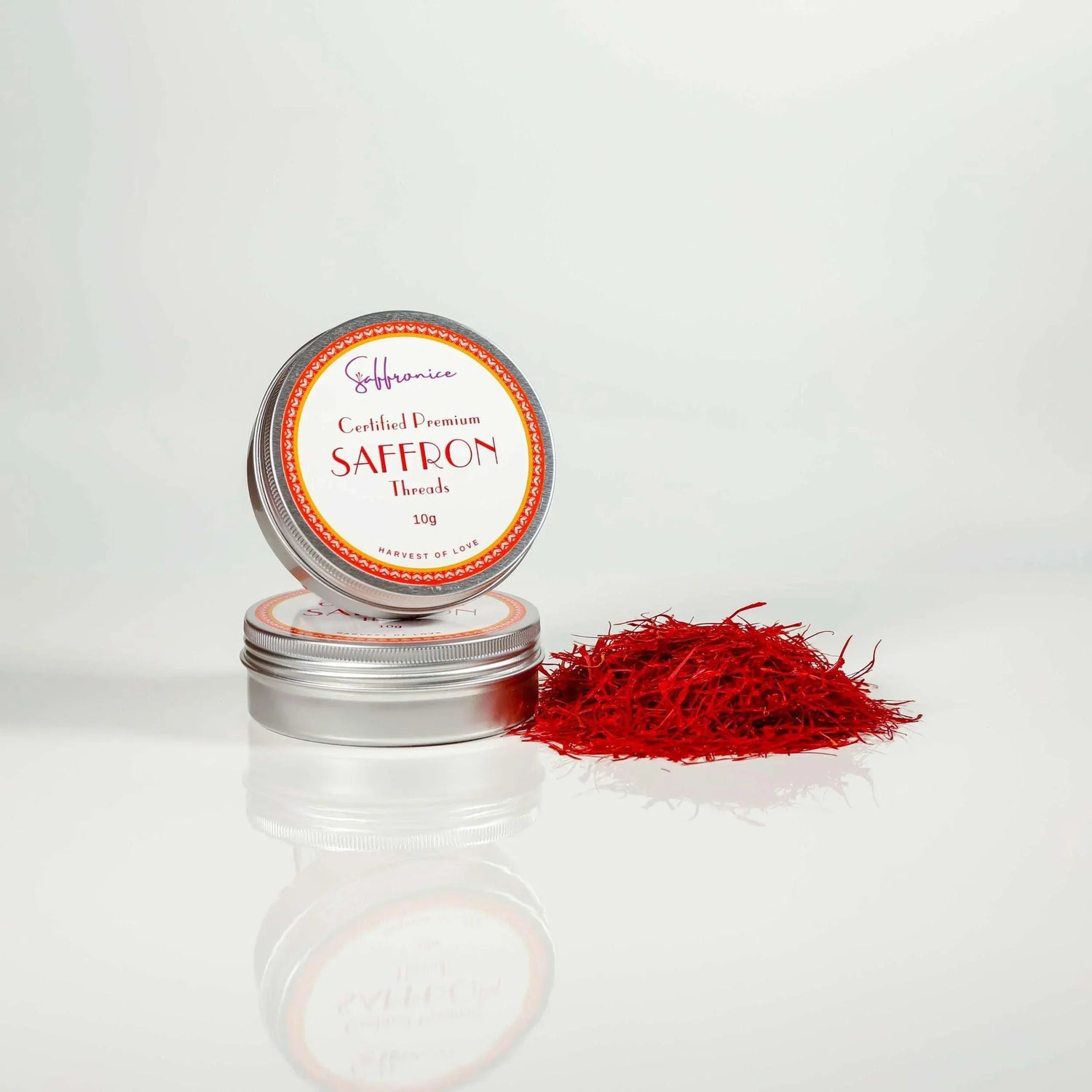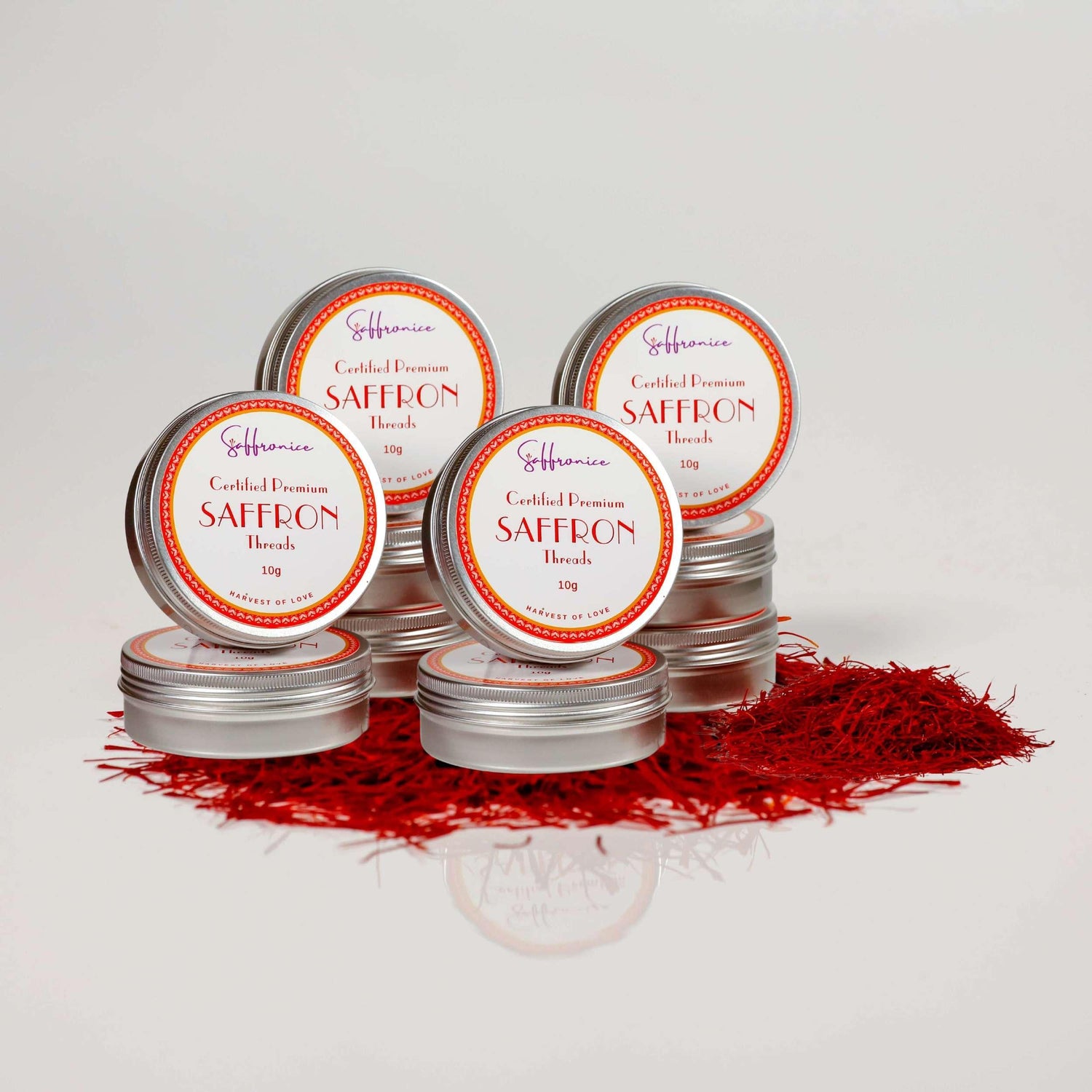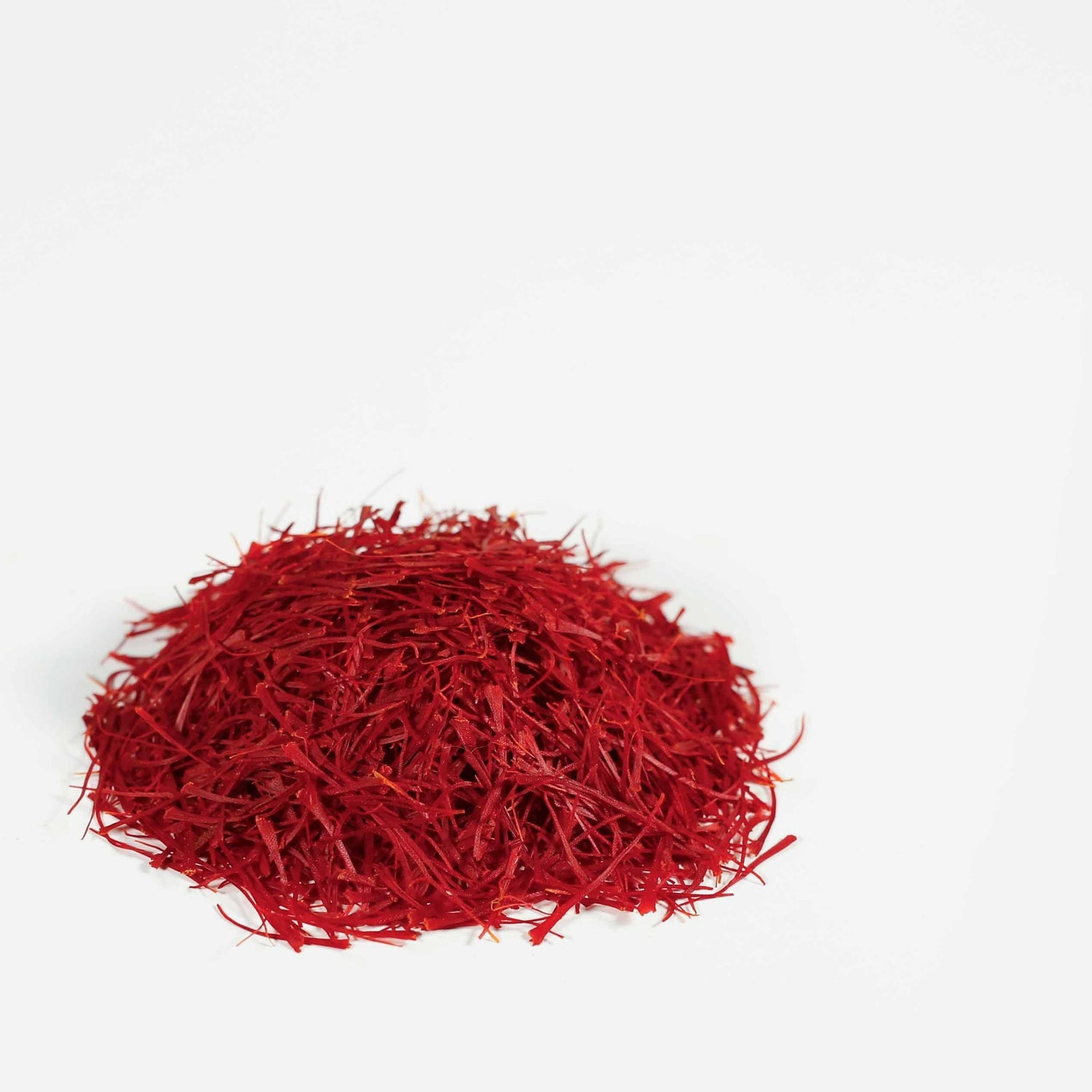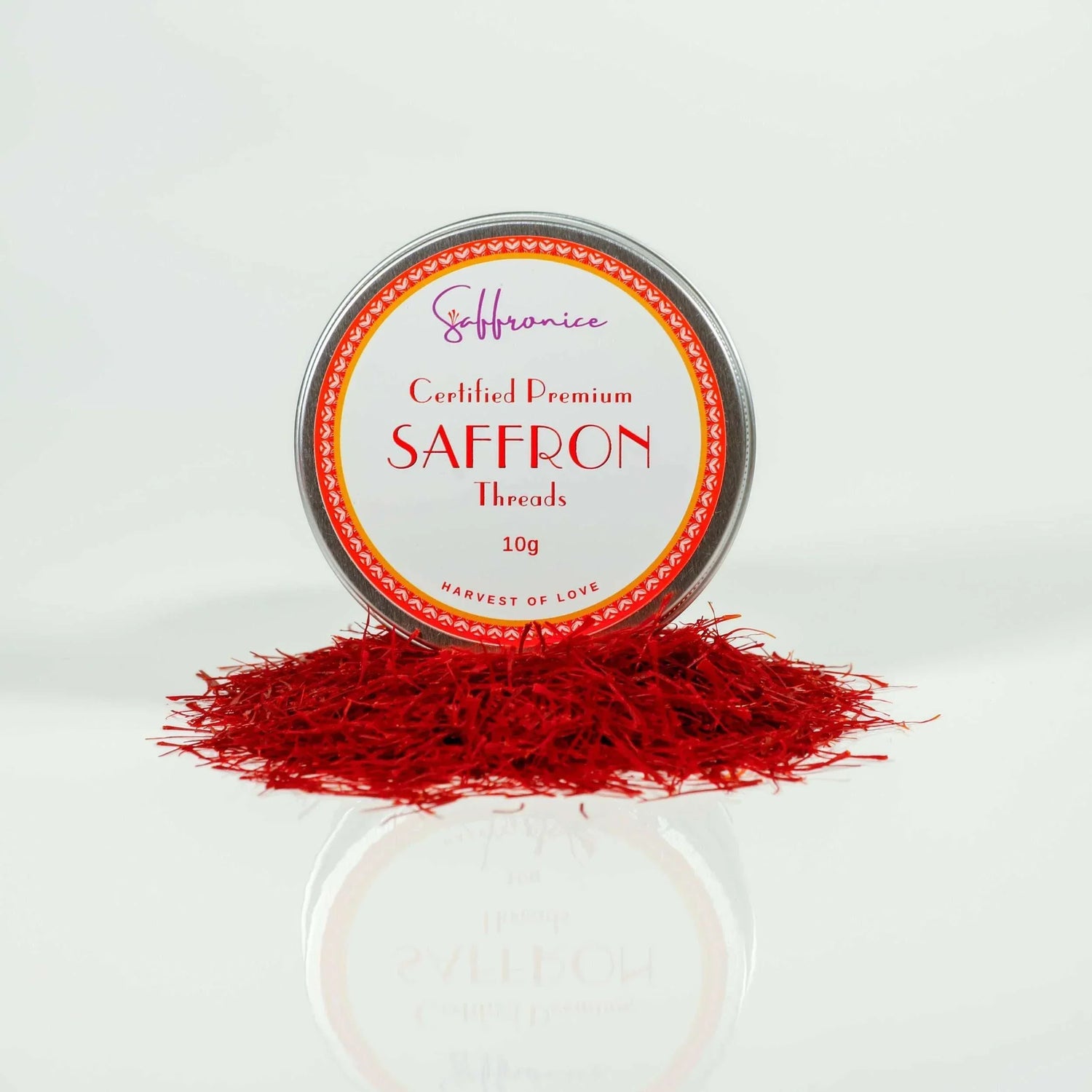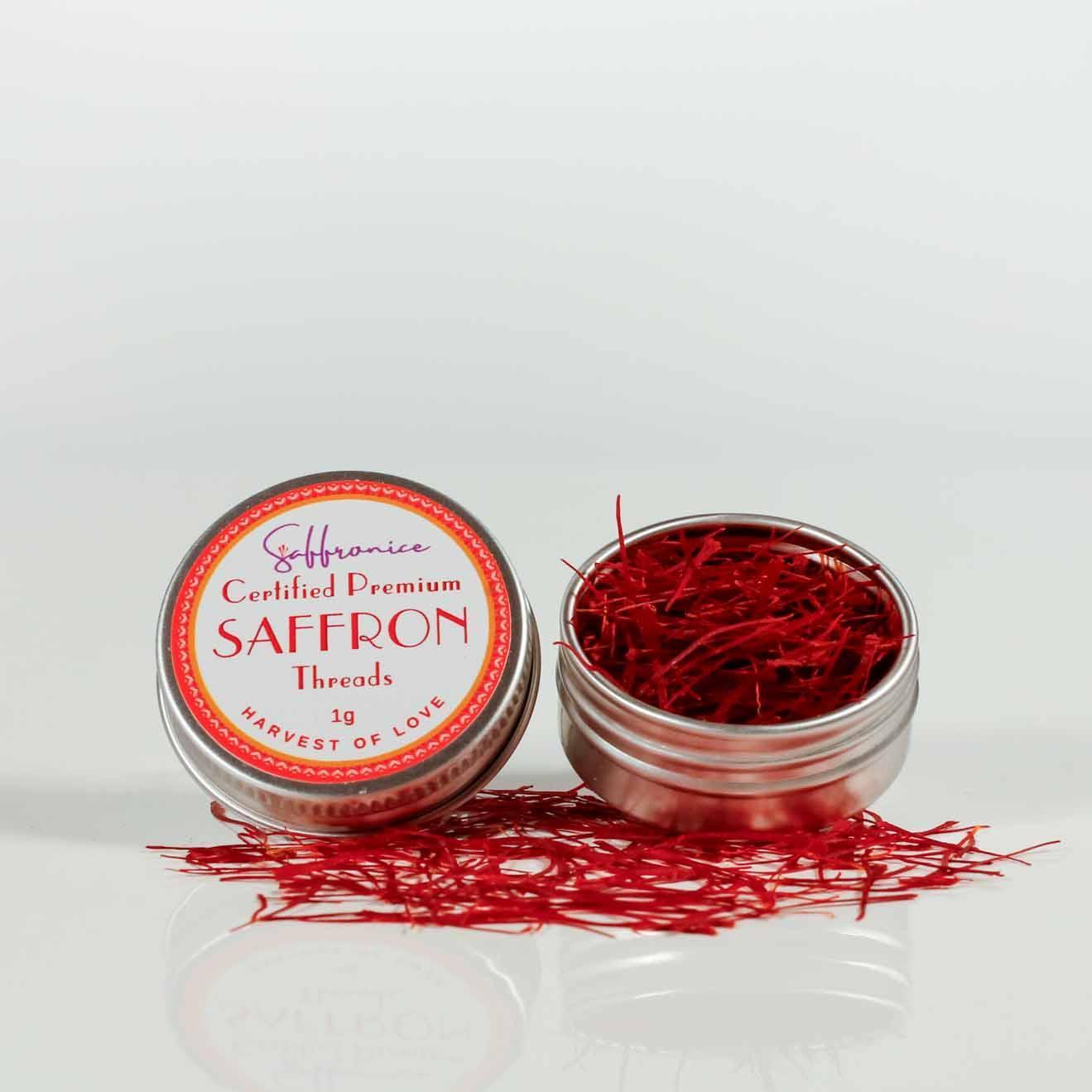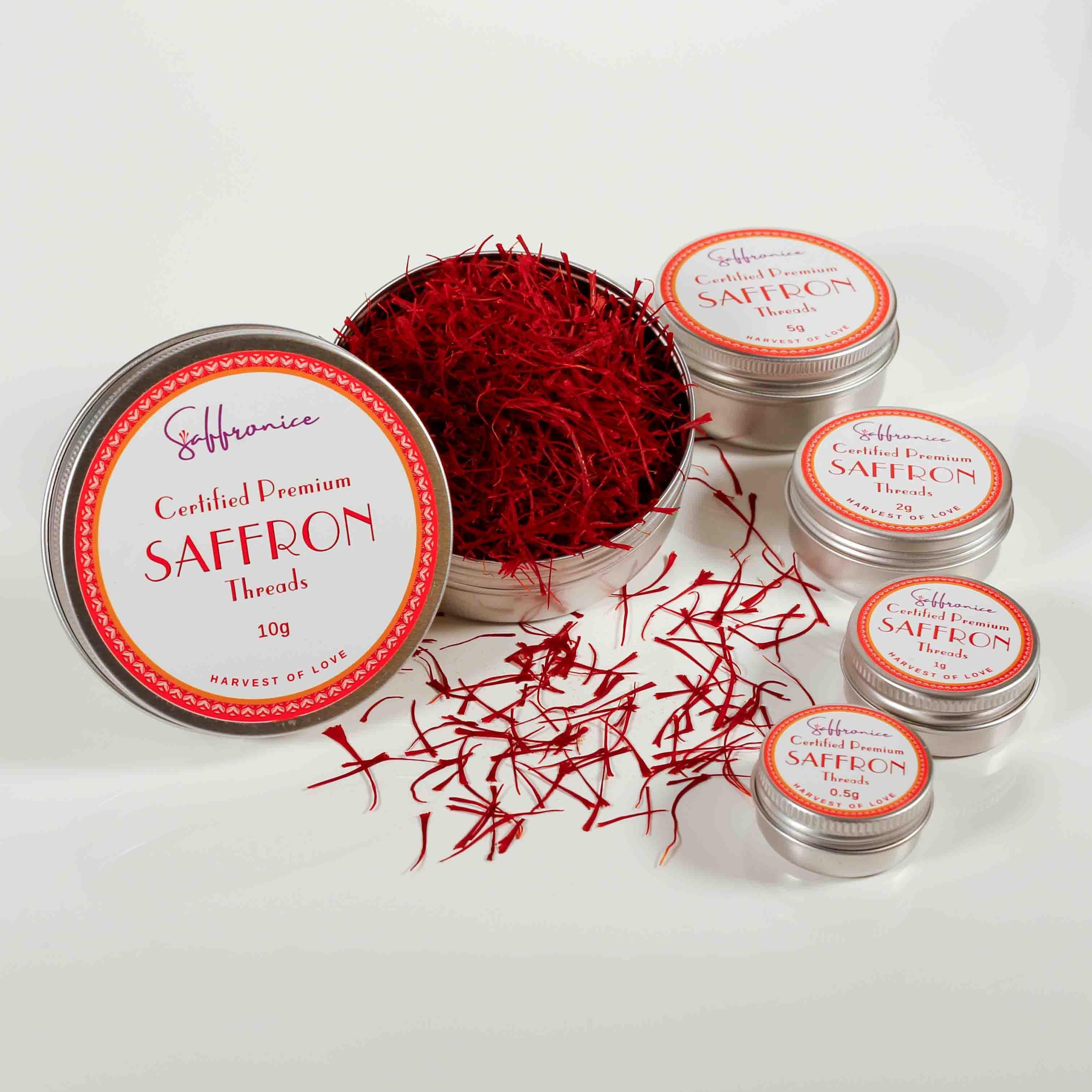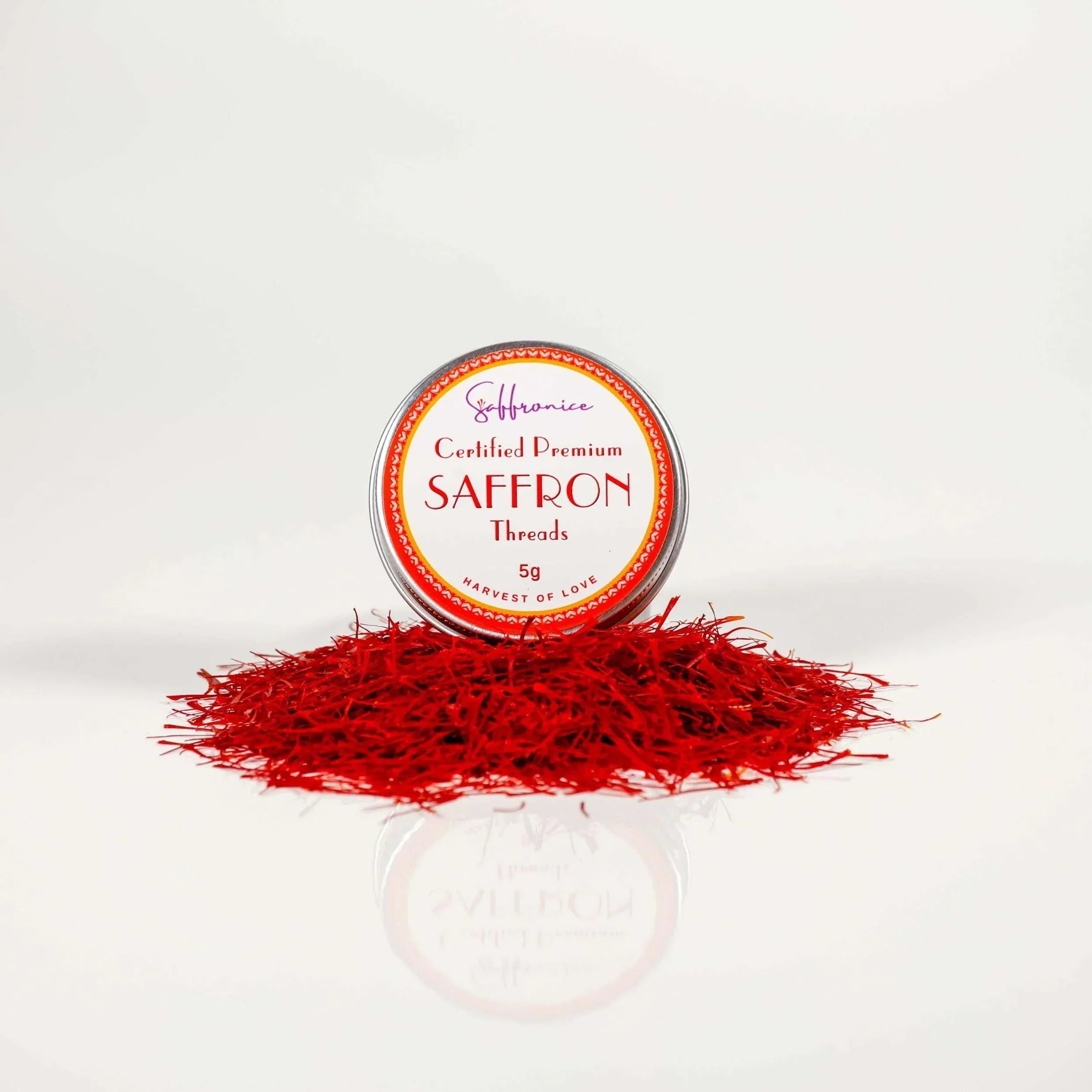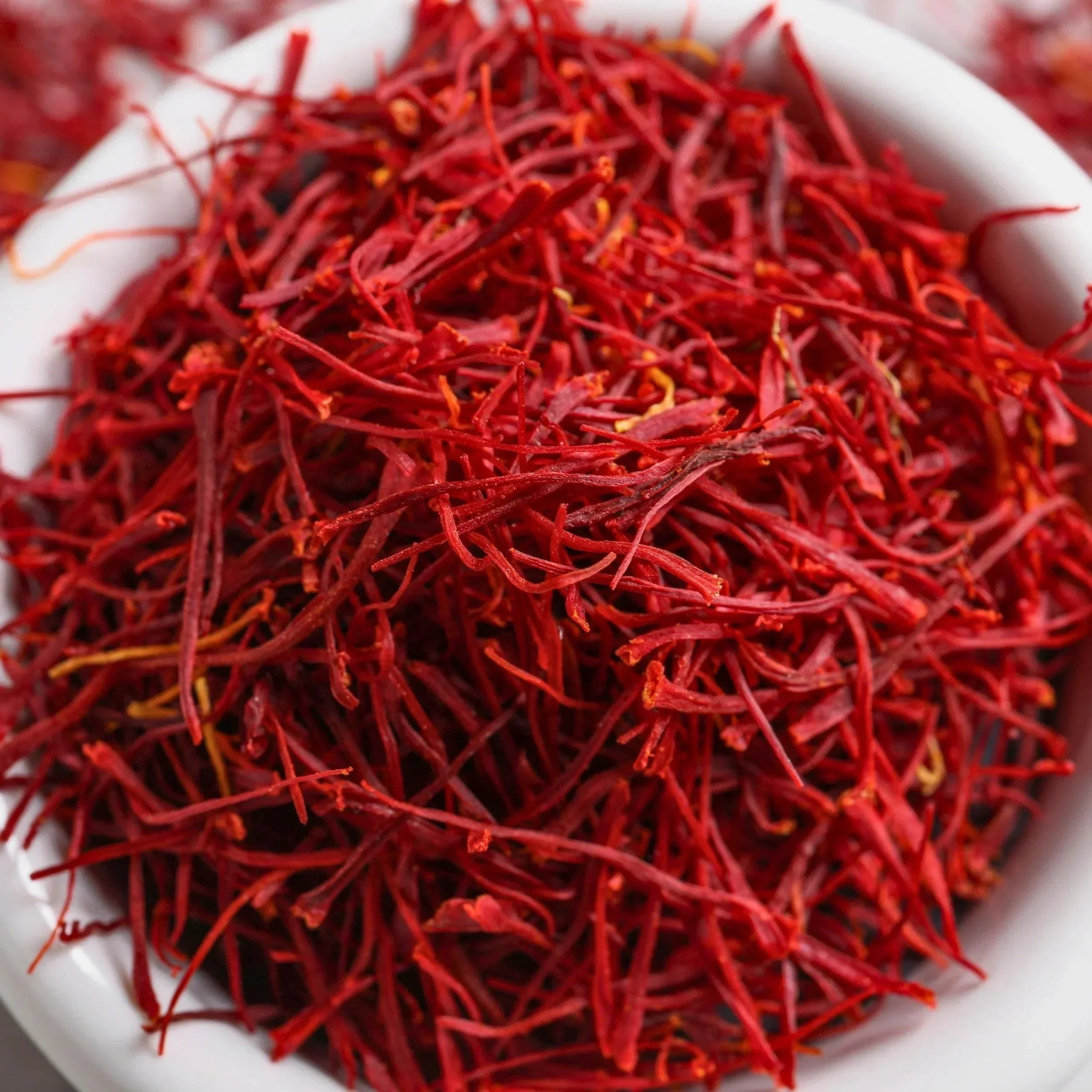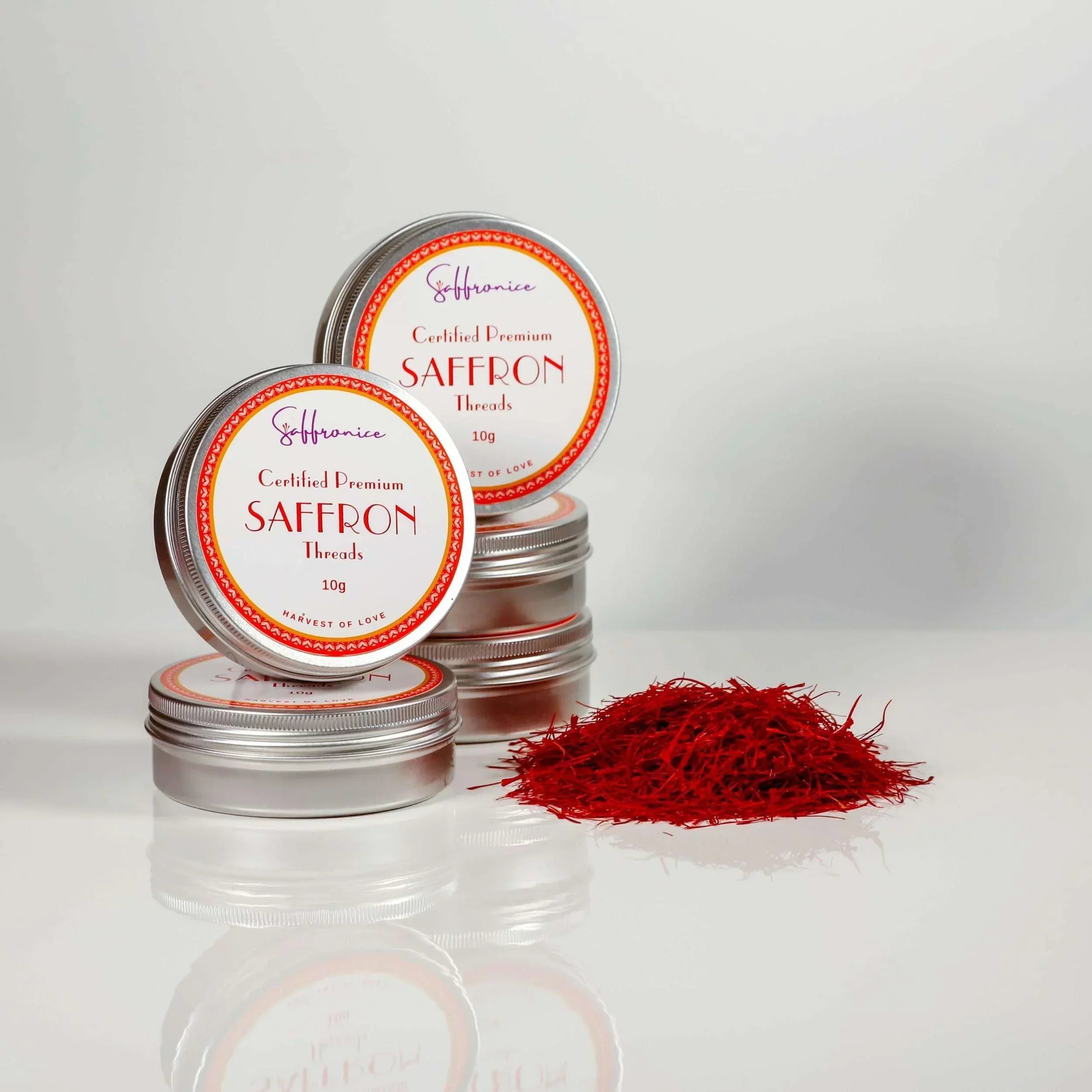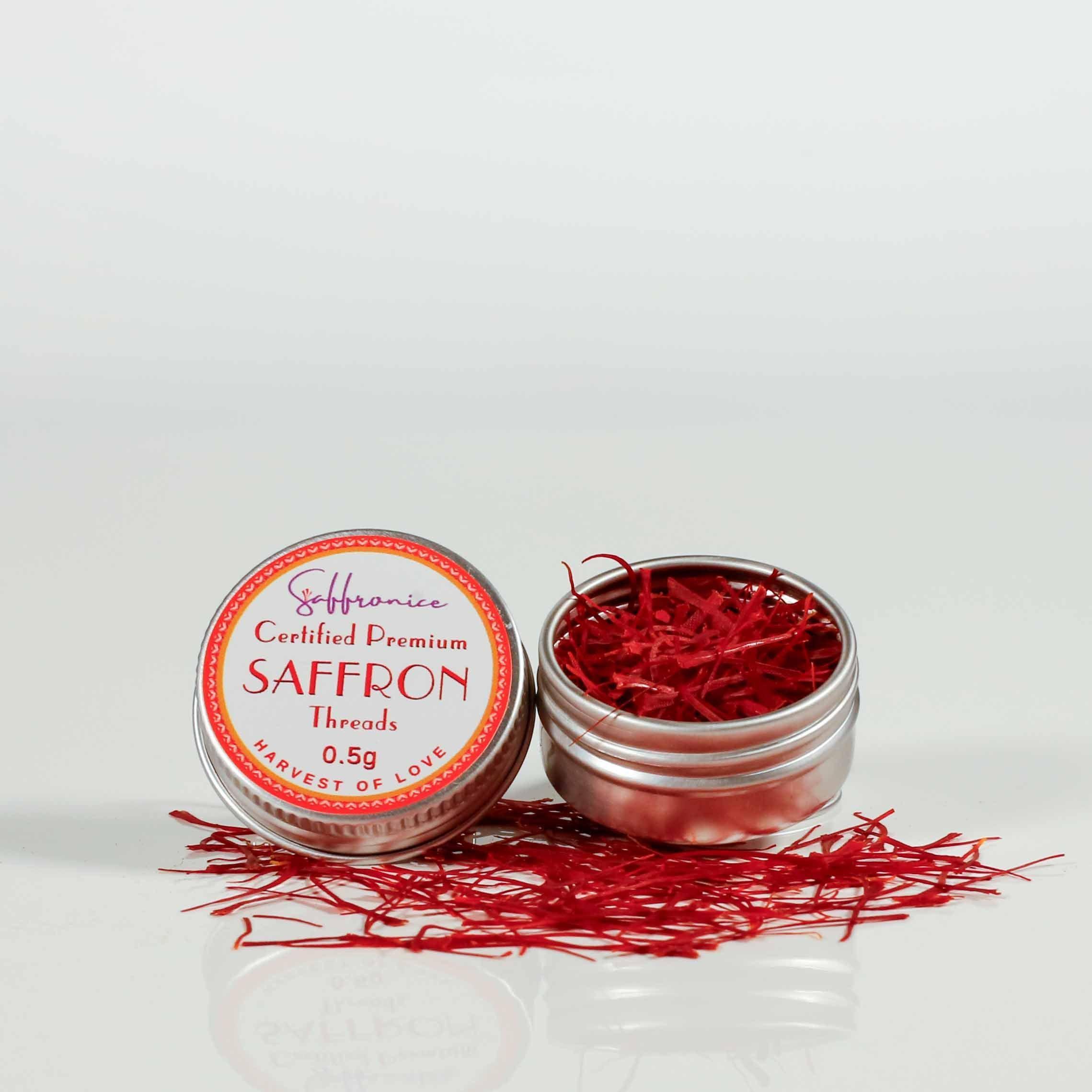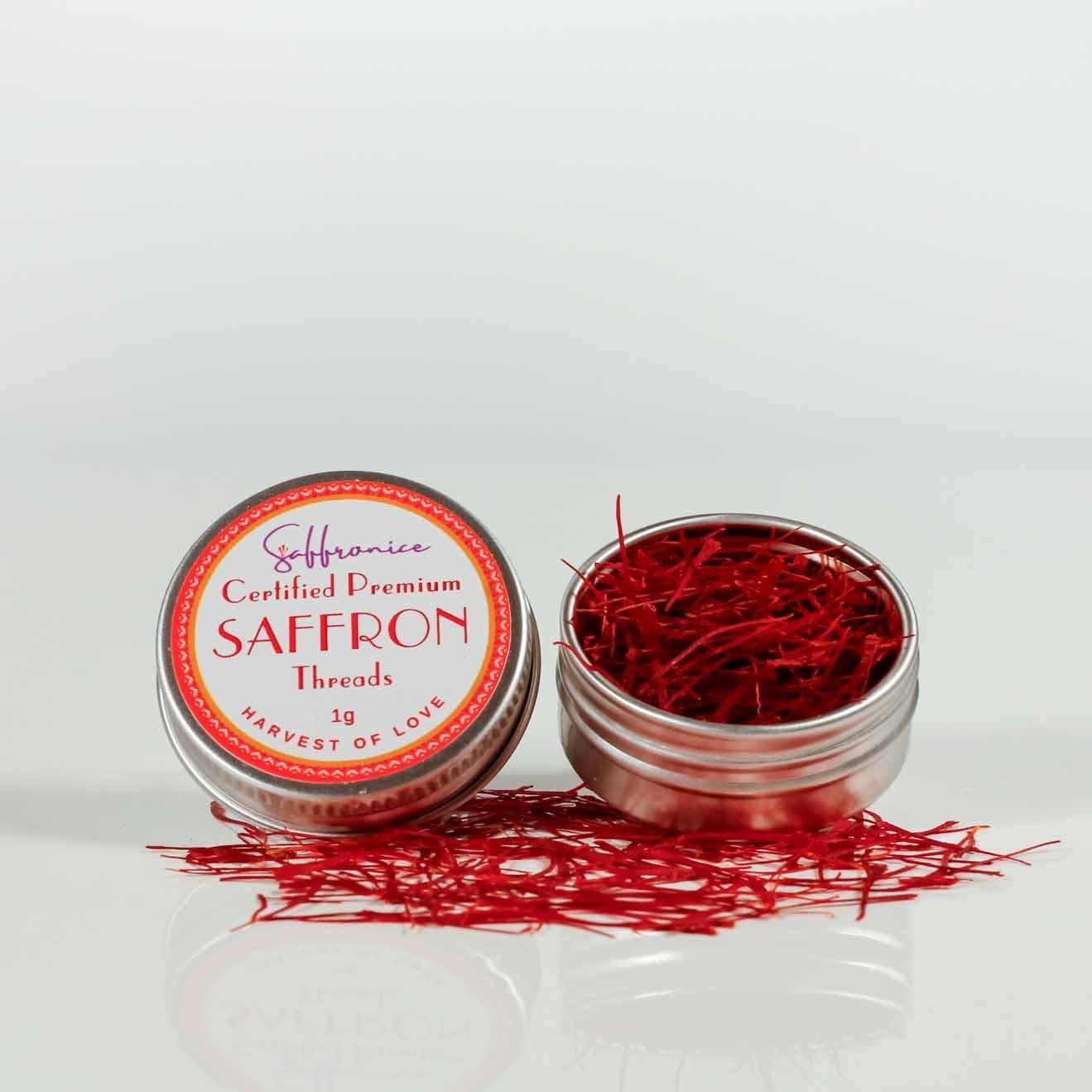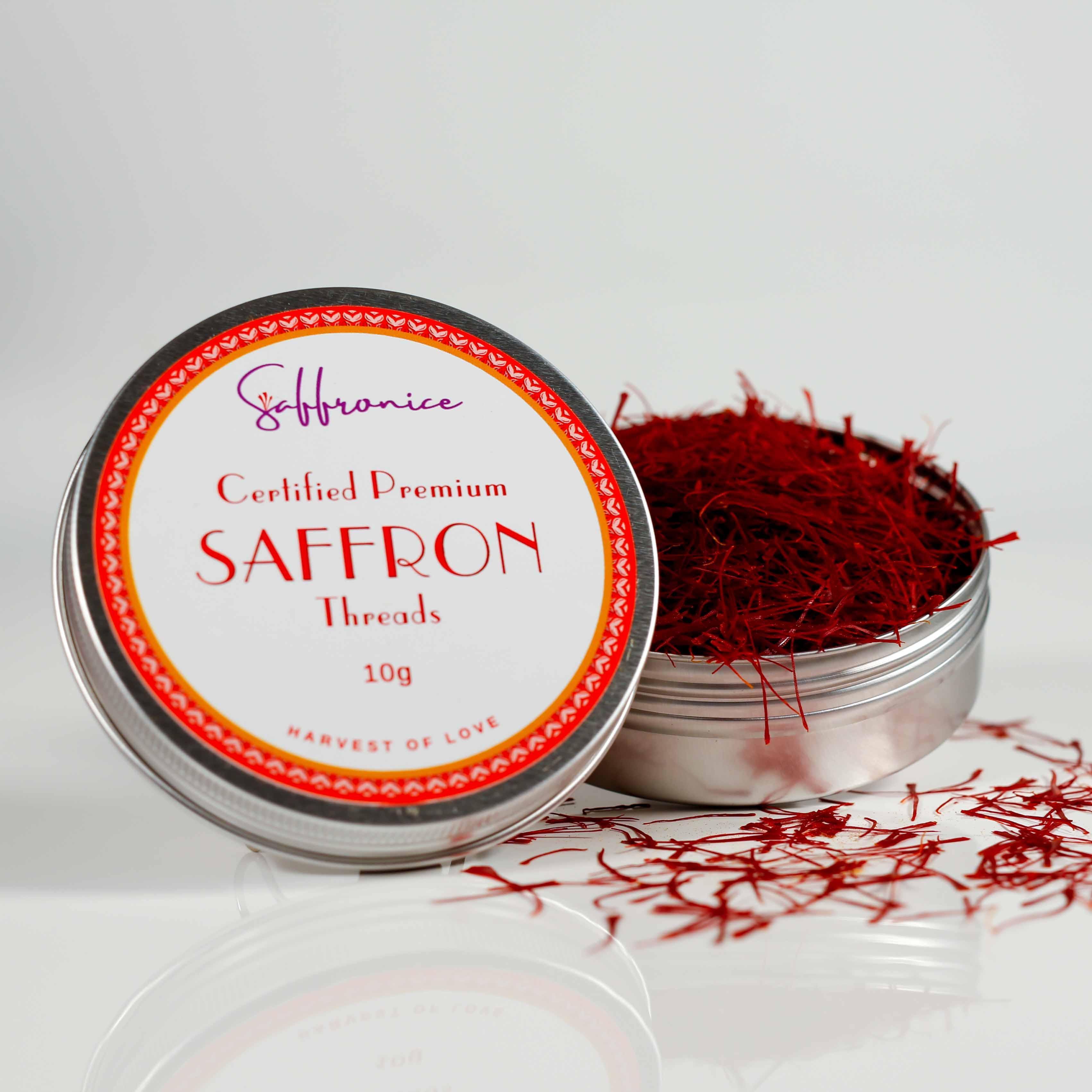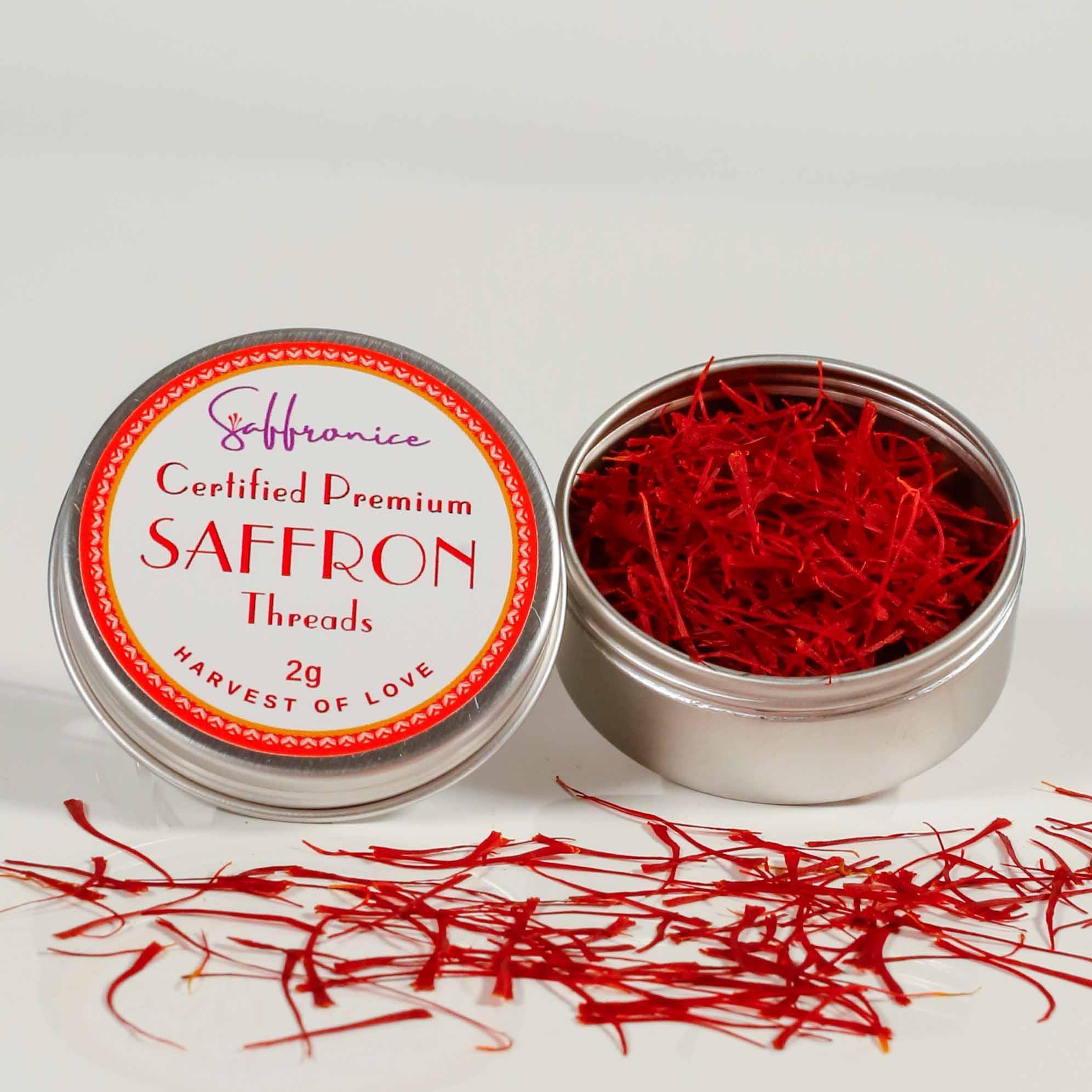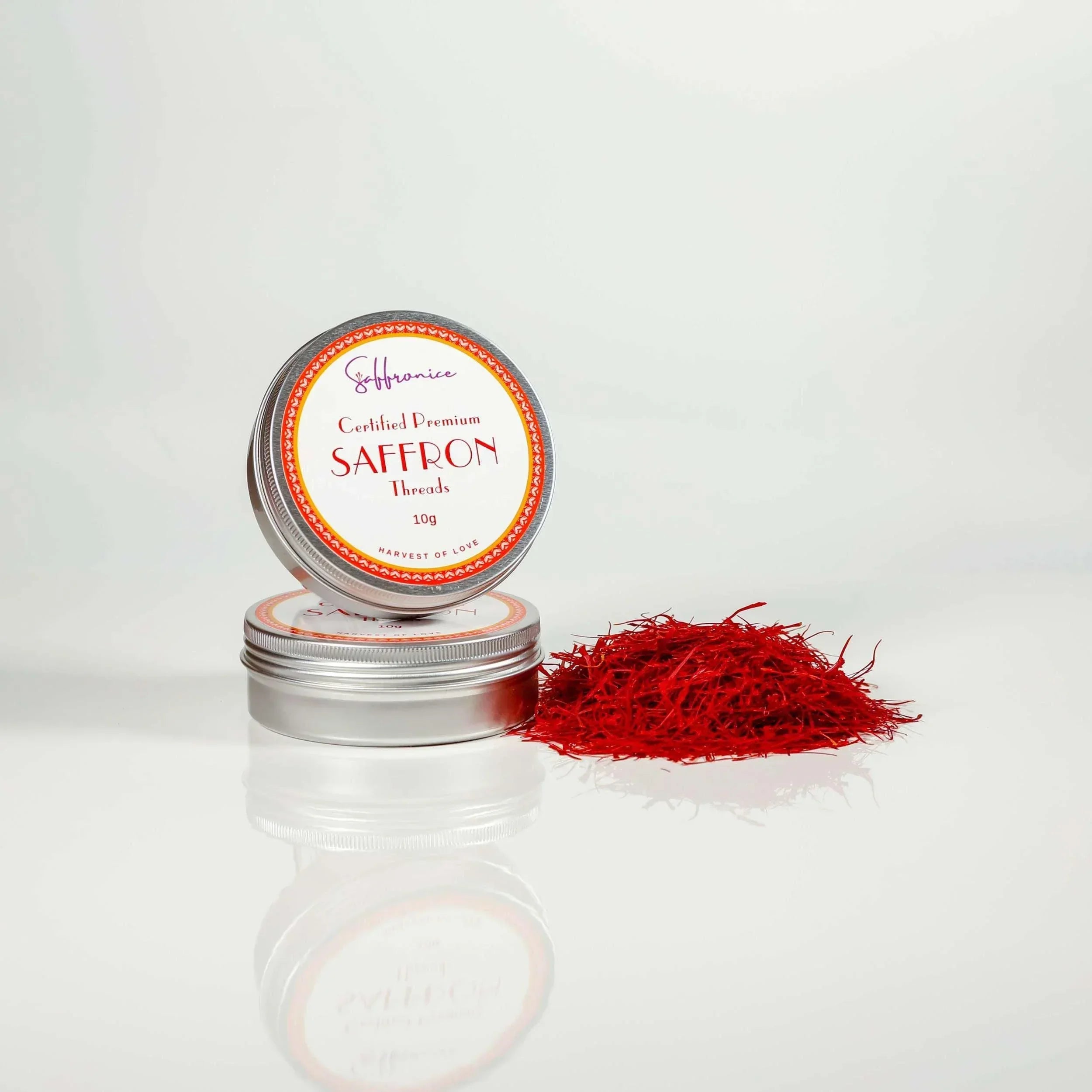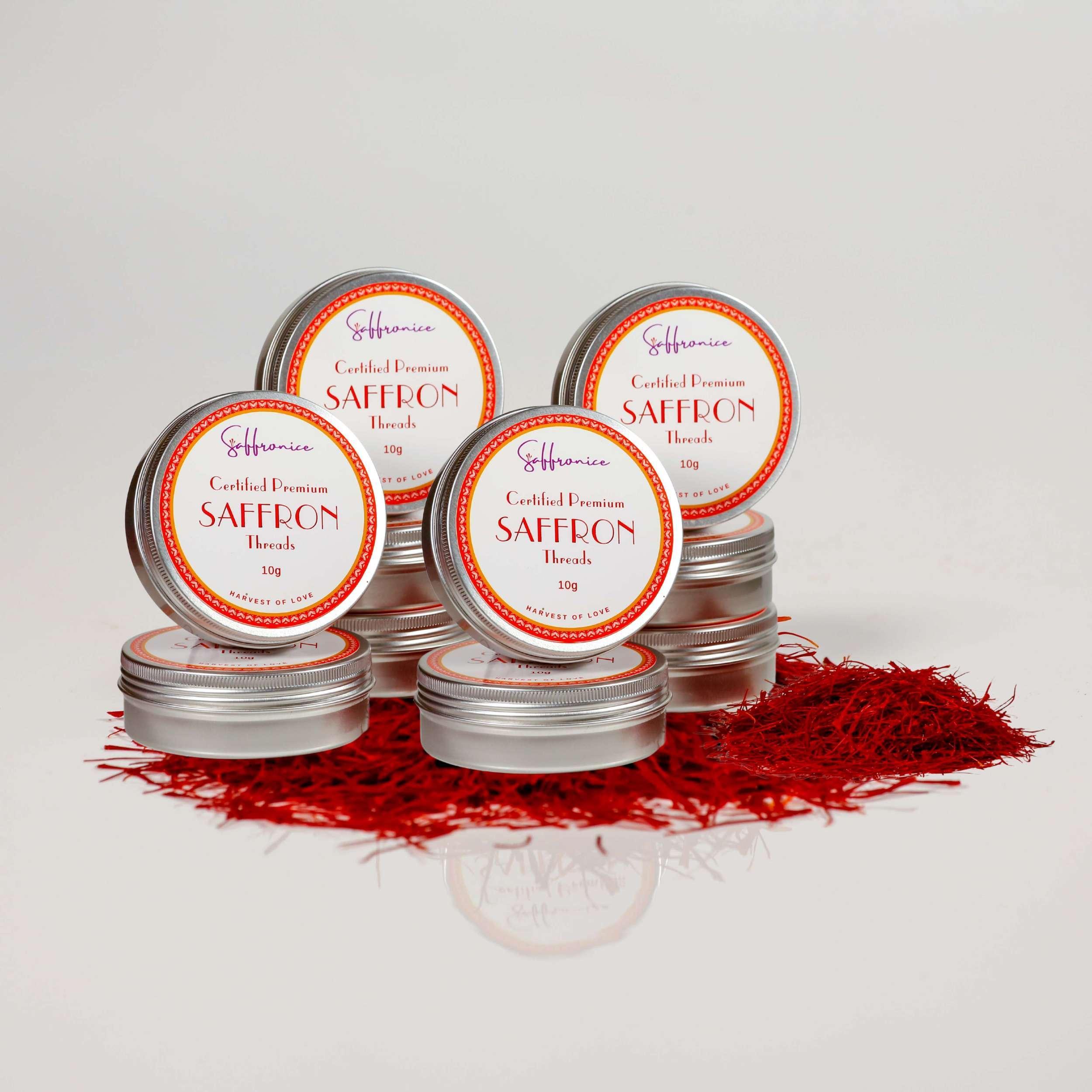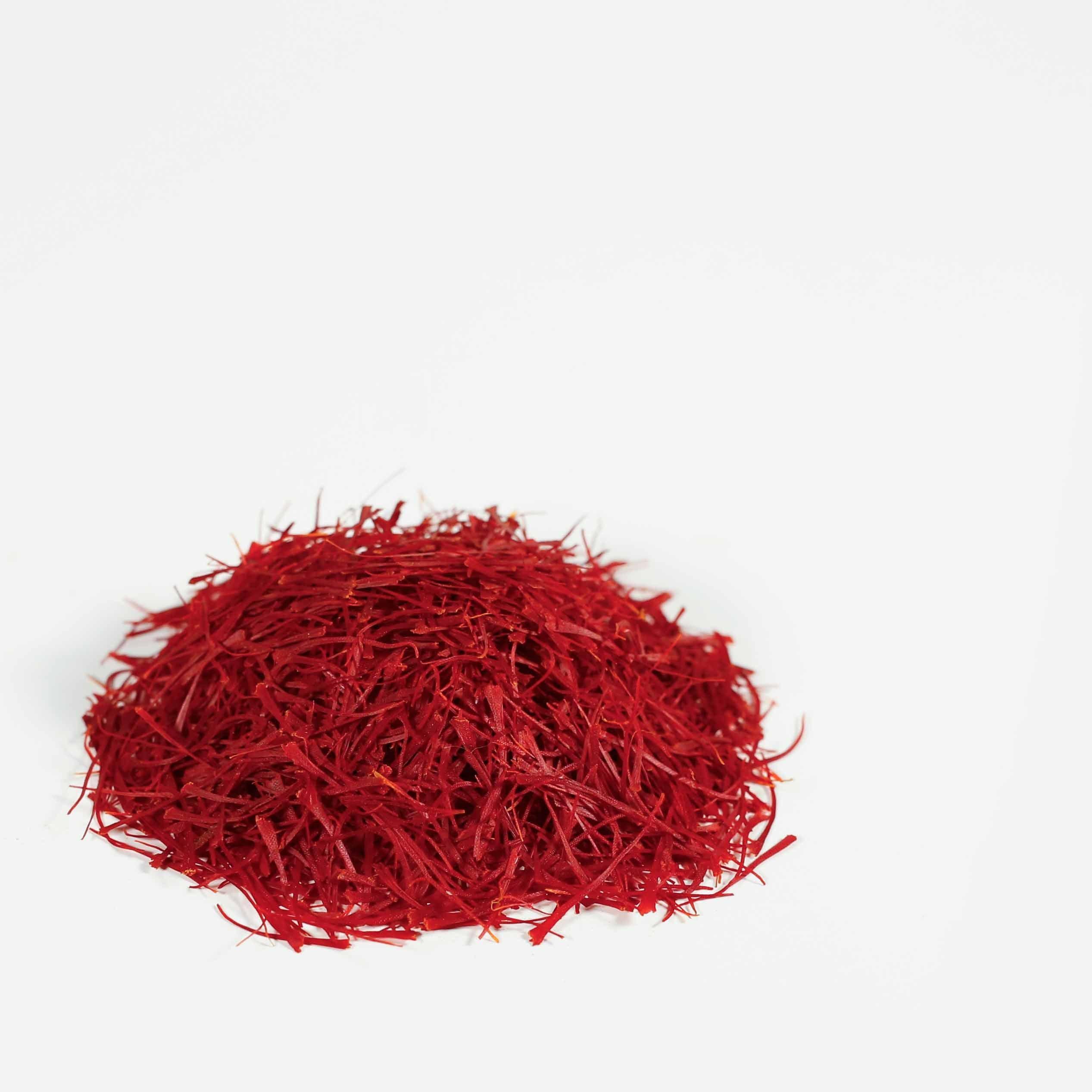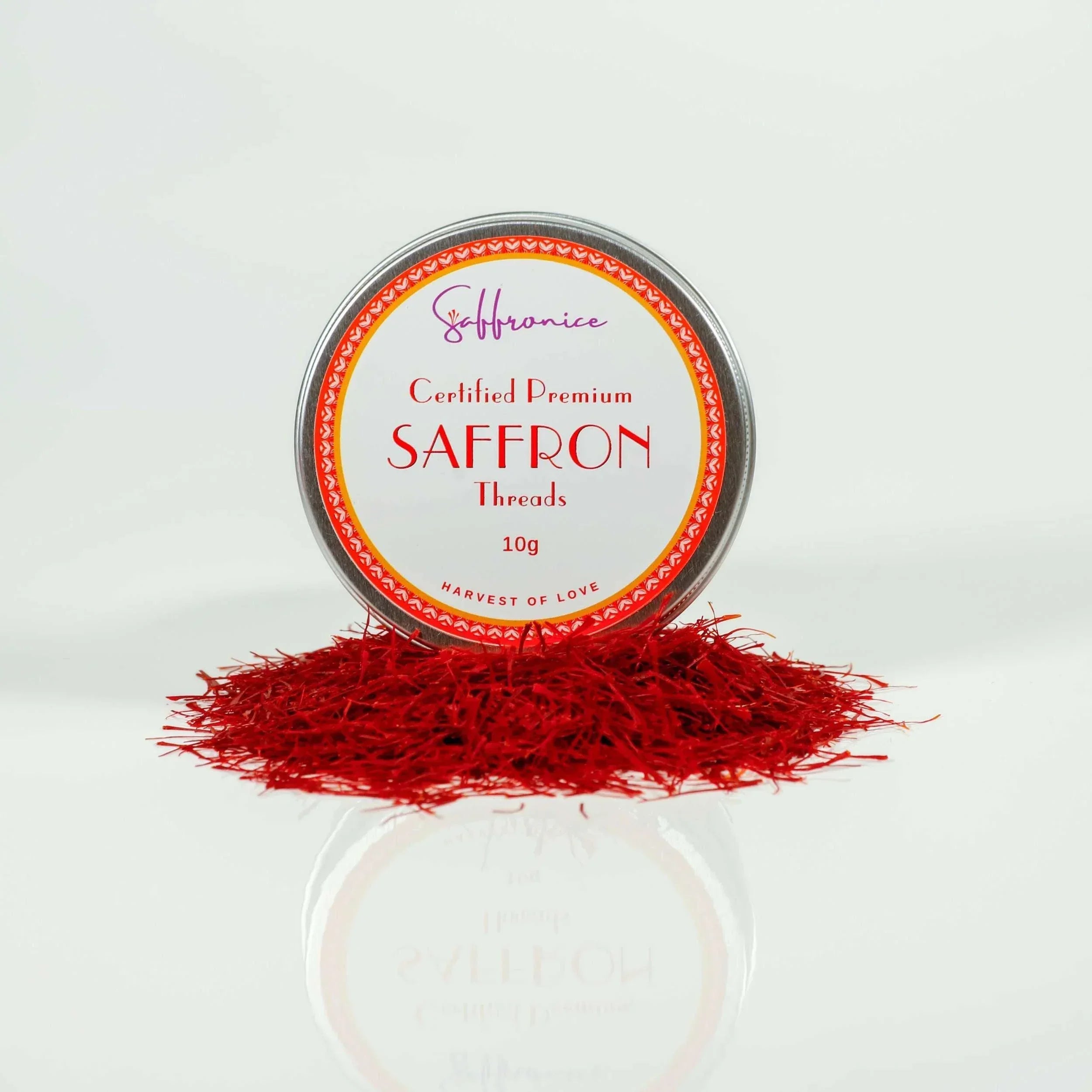Saffron, derived from the flower Crocus sativus, has long been celebrated not only as a valuable spice but also for its medicinal properties. Recent studies have linked saffron to better sleep, highlighting its potential as a natural remedy for those grappling with insomnia or restless nights. However, the benefits of saffron extend beyond just sleep improvement.
Key Takeaway
Research suggests that saffron might improve sleep quality. This makes it an intriguing option for anyone seeking a natural solution to enhance their sleep patterns. Additionally, the skin care benefits of saffron are noteworthy, as it is known to provide antioxidants, hydration, and a natural glow to the skin.

Understanding the Benefits of Saffron for Sleep Enhancement
A Brief History of Saffron
Saffron, often referred to as "red gold," comes from the flower Crocus sativus. This valuable spice has been cherished since ancient times for its vivid color, unique aroma, and numerous health benefits. It is primarily grown in countries like Iran, India, and Greece, and has a history that spans thousands of years.
Traditional Uses of Saffron
In traditional herbal medicine, saffron has been revered for its therapeutic properties:
- Promoting Relaxation: Ancient healers used saffron to create concoctions aimed at calming the mind and promoting relaxation.
- Enhancing Mood: Known for its mood-enhancing properties, saffron was often prescribed for individuals experiencing sadness or melancholy.
- Restful Sleep: Herbalists valued saffron for its potential to induce restful sleep. It was commonly included in bedtime remedies and teas.
Modern Uses of Saffron for Sleep
Today, saffron continues to capture scientific interest due to its potential role in sleep regulation. Researchers are delving into how this spice can support better sleep quality through various mechanisms. Studies indicate that saffron may help:
- Regulate Sleep Cycles: By potentially increasing melatonin levels, which play a crucial role in managing sleep-wake cycles.
- Improve Sleep Quality: Its active compounds, crocin and safranal, have shown promise in enhancing overall sleep quality and reducing insomnia symptoms.
Current Research on Saffron's Role in Sleep Regulation
Several research studies underscore saffron's potential benefits for sleep:
"A systematic review of randomized controlled trials has identified a positive correlation between saffron intake and enhanced sleep outcomes."
These studies explore dosages ranging from 14 mg to 28 mg taken before bedtime over periods of four to eight weeks. Participants reported significant improvements in total sleep time, ease of falling asleep, and overall sleep satisfaction. Notably:
- Improved Sleep Metrics: Clinical trials have demonstrated that saffron supplementation can lead to longer sleep durations and increased sleep efficiency.
- Fewer Side Effects: Compared to conventional pharmacological treatments for insomnia, saffron exhibits a favorable safety profile with minimal adverse effects.
Understanding these multifaceted benefits highlights why saffron is gaining recognition as a natural solution for those seeking better sleep.

The Science Behind Saffron's Sleep-Enhancing Properties
Active Compounds in Saffron
Saffron owes its sleep-enhancing properties to two key active compounds: crocin and safranal. These naturally occurring chemicals have been found to play significant roles in promoting better sleep quality.
- Crocin: Known for its antioxidant properties, crocin helps reduce oxidative stress, which can negatively impact sleep. By maintaining a balanced oxidative state, crocin contributes to an overall sense of well-being that supports restful slumber.
- Safranal: This compound is primarily responsible for saffron's distinctive aroma and has demonstrated sedative effects. Safranal is believed to influence neurotransmitter activity related to sleep regulation.
Mechanisms of Action
The benefits of saffron on sleep are linked to its unique ability to modulate fundamental biochemical processes in the brain:
- Melatonin Production: Saffron appears to enhance the body's production of melatonin, a hormone crucial for regulating sleep-wake cycles. Increased melatonin levels signal the body that it's time to prepare for rest, helping to induce sleep more naturally.
"Increased melatonin levels signal the body that it's time to prepare for rest, helping to induce sleep more naturally."
- Serotonin Levels: Another way saffron aids sleep is by impacting serotonin, a neurotransmitter closely associated with mood regulation and relaxation. By boosting serotonin levels, saffron creates a calming effect that makes it easier to fall asleep and stay asleep.
The combined action on both melatonin and serotonin sets saffron apart as an effective natural remedy for improving sleep quality.
Research into these compounds continues to uncover how they work synergistically to support the physiological processes essential for restful and rejuvenating sleep.
Clinical Evidence Supporting Saffron as a Natural Sleep Aid
Summary of Key Clinical Trials
Several clinical trials have shown that saffron can help improve sleep. In one study involving adults with self-reported sleep problems, researchers found that taking saffron supplements led to better sleep outcomes, such as longer total sleep time and higher sleep efficiency rates. Participants who received saffron extract reported significant improvements in their overall sleep quality compared to those who received a placebo.
Dosage Ranges and Duration of Trials
Research studies have looked at different amounts of saffron used, usually between 14 mg to 28 mg, taken before bedtime. These trials typically lasted between 4 to 6 weeks, which is a reasonable period to see how saffron affects sleep patterns.
- 14 mg dosage: This lower end of the dosage range has been linked to noticeable improvements in sleep quality without major side effects.
- 28 mg dosage: At the higher end, participants experienced even greater benefits, including longer total sleep time and shorter time taken to fall asleep.
Example Studies
- In one notable study, participants took 28 mg of saffron daily for six weeks. They reported spending more time in bed and finding it easier to fall asleep.
- Another study focused on a four-week period with a 14 mg daily dose. Results indicated better overall sleep satisfaction and a reduction in insomnia severity.
These findings highlight the potential of saffron as a natural solution for improving sleep quality, offering an alternative to traditional medications known for their side effects.
Saffron's Multifaceted Benefits Beyond Sleep Improvement
Saffron's potential isn't limited to enhancing sleep quality. It offers a range of benefits that extend to mental health, addressing issues often intertwined with poor sleep.
Impact on Mental Health
Chronic insomnia and other sleep disorders frequently go hand-in-hand with anxiety and depression. These conditions can create a vicious cycle, where poor sleep exacerbates mental health issues, which in turn hinder restful sleep. Saffron shines here due to its positive influence on mood.
1. Anxiety Disorders
Research indicates that saffron can help reduce symptoms of anxiety. Compounds like crocin have been shown to exhibit anxiolytic properties, providing a calming effect that can ease the mind before bedtime.
2. Depressive Symptoms
Several studies highlight saffron’s antidepressant effects. It's believed that saffron boosts serotonin levels in the brain—a neurotransmitter critical for mood regulation. Enhanced serotonin levels contribute to a more positive outlook, indirectly supporting better sleep patterns by reducing depressive symptoms.
Managing Chronic Insomnia
Saffron's calming properties are particularly beneficial for those struggling with chronic insomnia. Its ability to promote relaxation makes it a valuable tool:
- Calming Effect: The spice helps to soothe the nervous system, making it easier for individuals with chronic insomnia to drift into a restful state.
- Consistency in Sleep Patterns: Regular supplementation of saffron has shown promise in maintaining consistent sleep patterns, crucial for those dealing with long-term sleep issues.
By addressing both the root causes and symptoms associated with poor sleep, saffron presents itself as a holistic solution for enhancing overall well-being. This multifaceted approach not only improves sleep but also supports mental health, creating a balanced and healthier lifestyle.
How to Incorporate Saffron into Your Nightly Routine for Better Sleep Quality
Exploring the different ways to integrate saffron into your nightly routine can help you find the most convenient and effective method for enhancing sleep. Here are some popular options:
Different Forms of Saffron Supplementation
1. Saffron Tea
Advantages: Simple to prepare, soothing warm beverage, easy to digest.
Disadvantages: Requires preparation time, variable potency depending on the quality of saffron used.
Saffron Tea Recipe:
- Ingredients:
- 4-5 strands of saffron
- 1 cup of hot water
- Optional: honey or milk for added flavor
- Instructions:
- Boil water and let it cool slightly.
- Add saffron strands to the hot water.
- Let it steep for 10-15 minutes.
- Add honey or milk if desired.
- Drink the tea about 30 minutes before bedtime.
2. Saffron Capsules
Advantages: Pre-measured dosage, convenient to consume, consistent potency.
Disadvantages: May contain fillers or additives, requires purchase from reliable sources.
Recommended Dosage:
Studies suggest that taking between 14 mg to 28 mg of saffron extract in capsule form approximately 30 minutes before bedtime yields optimal results.
3. Saffron Extracts and Tinctures
Advantages: High concentration of active compounds, easy to add to beverages or recipes.
Disadvantages: Can be more expensive, may have a strong taste that needs masking.
Timing and Dosage for Optimal Results
For those opting for tea, drinking it about half an hour before bed allows time for the calming effects to take hold. Capsule users should follow the same timing guideline—taking them around 30 minutes prior to sleep ensures the body begins processing the active compounds as you wind down your day.
Finding which form suits your lifestyle best is key to making saffron a seamless addition to your nightly routine. Whether through a comforting cup of tea or a convenient capsule, incorporating this natural remedy could pave the way for more restful nights ahead.
Ensuring Safety When Using Saffron as a Sleep Aid
Comparing Saffron's Safety Profile to Conventional Treatments
Saffron, a natural herbal supplement, has a safety profile that stands out when compared to conventional medications for insomnia. Traditional sleep medications can often lead to unwanted effects such as dependency, daytime drowsiness, and cognitive impairment. On the other hand, saffron is generally well-tolerated by most individuals and has a lower risk of these side effects.
Potential Side Effects and Precautions
While saffron is considered safe for most people, it's important to be aware of potential side effects and precautions:
- Excessive Consumption: Taking too much saffron can lead to symptoms like nausea, dizziness, or even more severe reactions in rare cases.
- Individual Sensitivities: Some individuals may experience allergic reactions or sensitivities to saffron. Symptoms might include skin rashes or gastrointestinal discomfort.
Those who should avoid using saffron include:
- Pregnant Women: High doses of saffron might induce uterine contractions.
- Individuals on Medication: If you're taking medication for blood pressure or mood disorders, consult with your healthcare provider before adding saffron to your regimen.
By being mindful of these considerations, you can safely incorporate saffron into your nightly routine for better sleep quality.
Conclusion: Embracing Saffron as Your Natural Solution for Restful Nights Ahead!
Exploring saffron as a natural remedy offers a promising path to improve sleep quality. Its active compounds, crocin and safranal, have demonstrated significant potential in enhancing sleep duration and satisfaction. While individual results may vary, saffron's low risk of adverse effects makes it an appealing alternative to conventional sleep aids.
Taking the step towards incorporating saffron into your nightly routine could be the key to experiencing more restful nights and better overall well-being.
FAQs (Frequently Asked Questions)
What is saffron and how is it related to sleep enhancement?
Saffron, derived from the flower Crocus sativus, is a natural remedy that has shown promise in improving sleep quality. It is considered a potential solution for individuals struggling with insomnia or restless nights.
What are the traditional and modern uses of saffron for sleep?
Historically, saffron has been used in herbal medicine to promote relaxation and restful sleep. Modern research continues to explore its applications in sleep regulation, highlighting its effectiveness as a natural sleep aid.
What scientific evidence supports saffron's effectiveness for better sleep?
Clinical trials have demonstrated positive effects of saffron on various sleep metrics, such as total sleep time and sleep efficiency rates. Studies typically examine dosages ranging from 14 mg to 28 mg over durations of 4 to 6 weeks.
How does saffron affect mental health issues related to poor sleep?
Saffron may help manage mental health issues commonly associated with poor sleep, including anxiety disorders and depressive symptoms. Its calming properties can also assist in alleviating chronic insomnia symptoms.
What are the recommended ways to incorporate saffron into my nightly routine?
Saffron can be consumed in various forms, such as tea or capsules. Recommended dosages and timing for optimal results before bedtime are based on existing studies, which suggest taking it approximately an hour before sleeping.
Is saffron safe to use as a sleep aid compared to conventional treatments?
Saffron has a favorable safety profile compared to conventional pharmacological treatments for insomnia, presenting a lower risk of adverse effects. However, excessive consumption may lead to side effects, so it's essential for individuals with sensitivities or specific health conditions to consult a healthcare professional before use.





